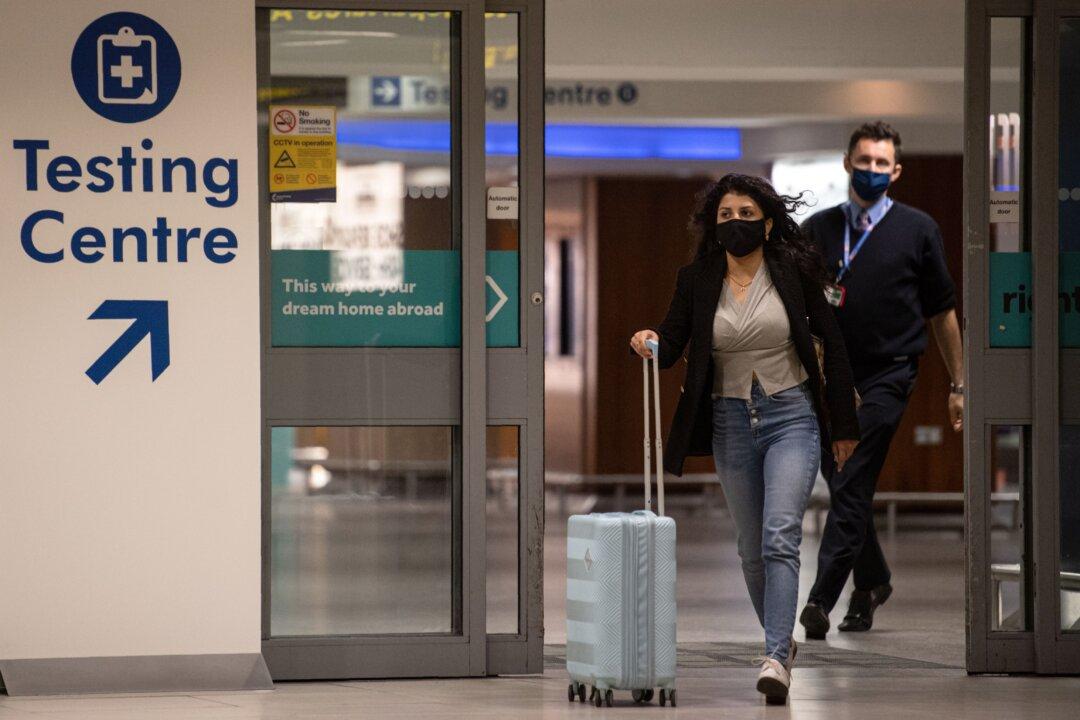The UK is to cut the self-isolation period from 14 to 10 days for people who have been in contact with someone who has tested positive for the CCP virus and for travellers arriving from abroad.
The reduced quarantine period will apply to England, Scotland, and Northern Ireland and will take effect from Dec. 14, the government announced in a media release on Friday.





